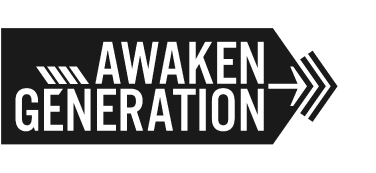Why We Co-Write
I’m not a fan of co-writing.
At least, not originally.
As an introvert and perfectionist who can take up to five years to write a song, the thought of sitting in a roomful of other songwriters fills me with anxiety. As if the stress of sharing a painstakingly-refined song isn’t enough, one also has to be vulnerable enough to open up to other people’s comments while bearing the weight of contributing meaningfully to their pieces. What if my ideas are shot down? Or I’m pressured to change a portion of lyric that I really like?
Being a part of the Awaken Generation songwriting team has (thankfully) forced me to change the way I think about co-writing. Writing together is definitely a big part of the culture here, especially since we release new music so often. Of course, it comes easier to some of us than others – ah hem, Alarice – but as with most skills, co-writing is a muscle to be stretched.
Over the years, I’ve come to realise that resistance to writing together often comes from pride. It may not be the obvious kind per se, but we do find satisfaction in creating something (seemingly) by ourselves. It’s just the way that most creatives are wired.
I think the first step to embracing co-writing comes when one finally acknowledges God as the preeminent Author. When we understand that He inspires all craft, our work then simply becomes canvases for His glory. Carl Daw Jr’s opening lines to a hymn goes:
God our Author and Creator
In whose life we find our own
Make our daily witness greater
By our lives make your love known
When we recognise this, absolute authorship no longer holds importance. Each co-writing session becomes a lesson in humility, in holding things loosely, if you will.
Another obvious benefit of co-writing is the honing of the work itself. Modern songwriting today is a testament to the value of co-writing and co-production, as detailed in this New York Times article about the 2018 pop hit, “The Middle”. Here’s an excerpt about the process:
“The material revealed an intricate dance between no fewer than eight collaborators – including, ultimately, an incongruous pair: the producer-D.J. Zedd and the pop-country singer Maren Morris – all of whom put egos and personal preferences aside in service of the sonic whole.”
Yes, the sonic whole - the larger and better tapestry. The widely-quoted proverb echoes this as well:
Iron sharpens iron,
and one man sharpens another.
(Proverbs 27:17)
How apt this is, especially when our medium of choice is one of words. Our language is always in need of sharpening, whether in terms of theological alignment or poetic expression.
To God Be the Glory, the title track of Awaken Generation’s latest album, had a total of six contributors! Besides featured worship leader Ian Chew, the lyric composition credits are shared by Gideon Lim, Jon Cho, Avelene Tan, Alarice, and Caleb Kay.
Lastly, because it involves multiple people, I do think it’s important to create conducive and safe environments for co-writing. At our annual songwriting retreat in January, we are intentional about building that atmosphere. Some of the things we do:
Consider chemistry and size. Since trust is of the essence, writing with people who are already journeying with you in life is always easier. This also has to do with size and ensuring everyone knows each other reasonably well. We usually try to keep the core writing group to about 10-12 people.
Cast the vision. Before a single word is written, it’s important to get everyone on the same page. This means a variety of things: sharing the album’s artistic concept and creative direction, ensuring everyone has an attitude of openness and positivity, drawing boundaries so that each other’s work is respected, etc.
Converge and split repeatedly. While there should be sessions where everyone is together for vision-casting and critique, writing in even smaller groups help to maximise efficiency. Too many cooks CAN spoil the broth. We recommend splitting people into groups of 2-3, ensuring that each is well-balanced in terms of strengths, i.e. lyric, melody, arrangement, etc.
This is the culture and environment that we endeavour to cultivate week after week at songwriting class as well. It’s why co-writing is embedded in our coursework, and why we frequently have workshopping sessions to encourage and critique in equal measure.
After so many years, I still can’t say that co-writing comes naturally to me. However, I have come to see it as a gift. I have witnessed great, prophetic songs for the season birthed out of it; a song being lifted out of the ordinary simply through another person’s input.
I leave you with a final prayer - may we all learn to revel in unity in diversity, to lay down our crowns to glorify the original Author and Creator of our beings!
—
Awaken Generation offers Songwriting as one of its many streams, which also include Vocals, Sound, and Dance. 2020 applications are now open. Register before 10 Nov 2019 for the Early Bird discount!
Click here for more info and to apply.
More Articles
- Worship 74
- Blog 56
- Community 43
- Creative 38
- Behind the Scenes 32
- Destiny 23
- Devotional 17
- Identity 16
- Discipleship 15
- Leadership 14
- Revival 12
- Ministry 10
- Songwriting 10
- School 9
- Technical 9
- Generosity 5
- Pastoral 4
- Vocals 4
- Drums 3
- Missions 2
- Social Media 2
- Sound 2
- Bass 1
- Contributors 1
- Guitar 1
- Israel 1
- Keyboards 1


